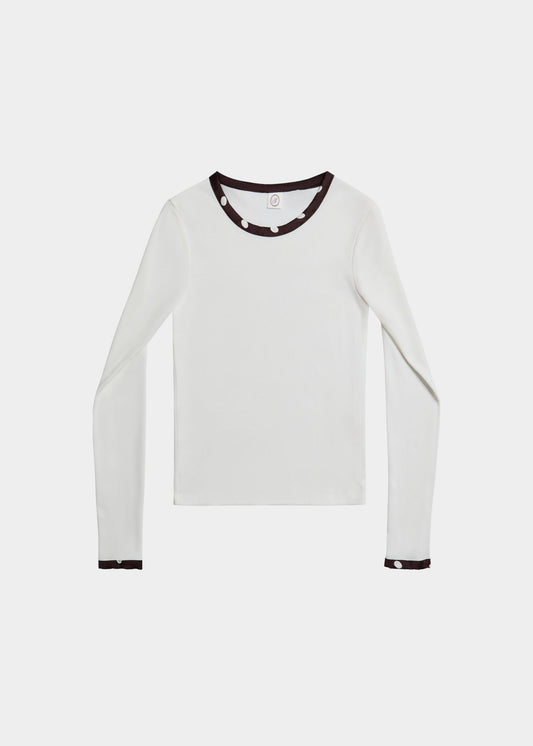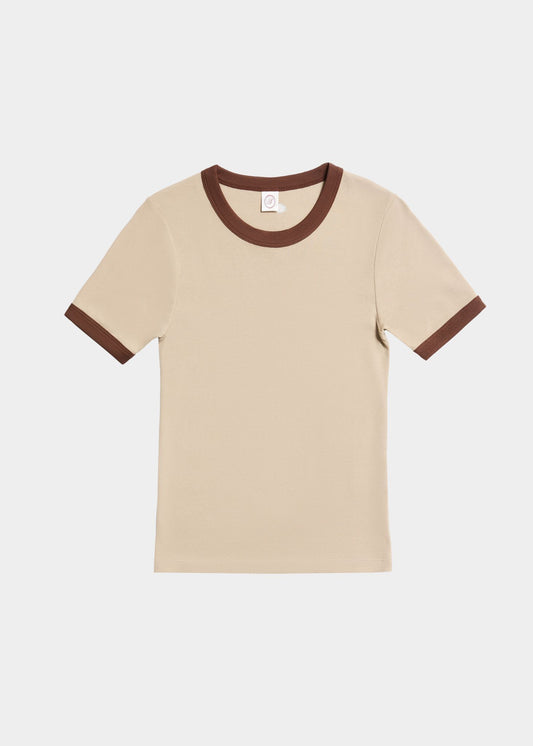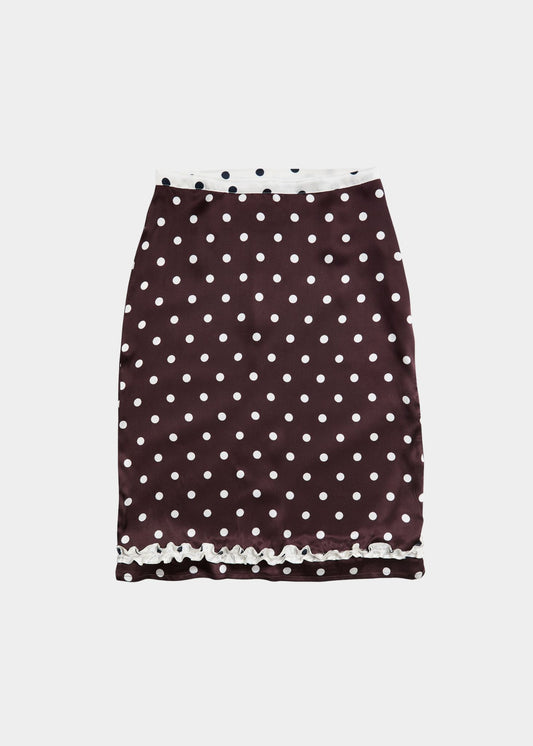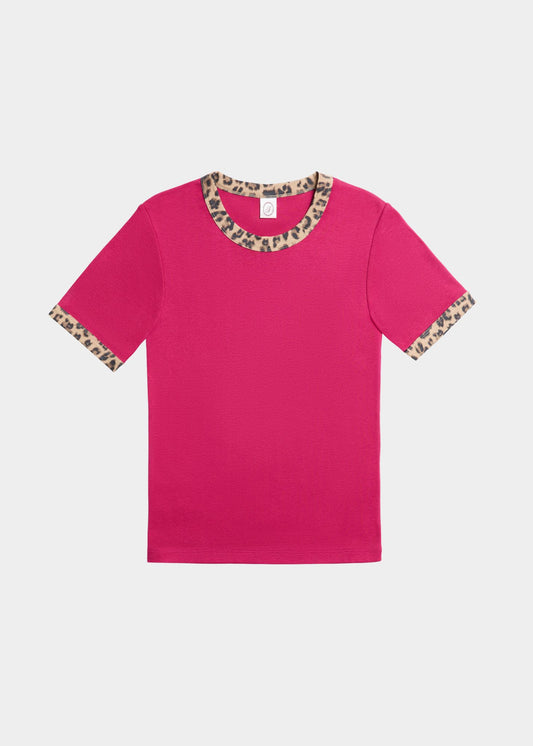GOTS

GOTS is a globally recognized standard for organic fibers, including independent certification of the entire supply chain. Yes, GOTS includes social, environmental, and health considerations in their protocol. In other words, the GOTS certification is your guarantee that your clothes are produced environmentally correct, as well as socially responsible = that a piece of fabric is made under proper working conditions, the fabric is free from harmful chemicals and is produced organically from harvest to final product.
GOTS is the most widely certification used when talking about organic textiles and it requires that a minimum of 70 percent of the product consists of certified organic fibers, and that all chemicals such as dyes meet the special environmental requirements.
The standard is divided into two different certification markings:
- Products made with at least 95% organic fibers
- Products made with at least 70% organic fibers and at most 10% synthetic fibers (maximum 25% for socks, leggings and sportswear).
Both labels use the same familiar logo - but there is a difference in the text on the packaging label. Products with at least 70% organic fiber must clearly, on the labeling, make the consumer aware of what percentage of organic fiber the product contains.
Textile products with at least 95% organic fibers are labeled as "organic". The manufacturer's GOTS license number will appear on the packaging and it will be possible to look it up here.
Organic cotton certified by the GOTS has proven a lower environmental impact, reducing water usage, greenhouse gas emissions, restricts the amount of chemicals used and ensures the workers rights are protected throughout the supply chain.
In order for a product to be GOTS-certified and carry the GOTS certificate, it requires that the entire chain is GOTS-certified - including the brand.
A product may well be produced from GOTS-certified textiles, with GOTS-certified colors at GOTS-certified factories - but if the brand is not GOTS-certified, the product must not bear the label. So when you see the GOTS label it means that all processors, manufacturers, and traders in the textile value chain are certified. This includes the stages of fiber preprocessing, yarn spinning, weaving/knitting, wet-processing, sewing, packaging, labeling and distribution.
When clothes meet GOTS standards, you can be sure that they are made of organic materials. The natural fiber is not treated with pesticides, as well as insecticide and the finished product is guaranteed free of fluorescent chemistry. In addition, it is environmentally friendly processed at the factory.
The GOTS standard has 4 basic operating principles:
-
Organic fibers A GOTS-certified textile product must contain at least 70% organic fibers, and a product with the label quality "organic" must contain at least 95% organic fibers.
-
Social criteria GOTS ensures the welfare of the people involved in the production of the product, this is fixed minimum wage, working environment, working hours, no discrimination is accepted, employment must be chosen voluntarily, no harassment and voilence, minimum working age and breaks.
-
Coverage of all machining phases The GOTS certificate defines at a high level environmental criteria that must be present throughout the value chain for organic textiles, from sowing and growing the cotton, to picking, transport, processing and storage. In all production processes, GOTS require that all machinery are cleaned. Additionally, a sign indicating “organic cotton” must be affixed to the machinery so no conventional cotton comes in contract with the organic cotton. Even slight contact can transfer pesticide laden fibers to the organic cotton which would cause a failure in testing further down the production line, and GOTS also forbids co-mingling with non-certified fibers when handling yarns in spinning.
- Third Party Certification Inspection and certification of manufacturers, processors and dealers is performed by independent third-party certification bodies that are certification approved by GOTS. These form the basis of the control system for GOTS. It is mandatory to meet all the basic principles in order to be certified with GOTS.
When the final product is packaged it is required by GOTS that the paper used is recycled and that there are no use of plastic or non-organic cotton in packaging.
You must go for the GOTS certificate if you want to be 100% sure that the textiles you buy are both organic, chemical-free and socially responsible produced.
Remember though that the most sustainable form of cotton you can use is recycled cotton, hereafter organic cotton with the GOTS certification.
Find out more about GOTS at www.global-standard.org
-

Conscious Closet with co-host Lea Rohe
Thursday September 4th, we opened the doors to something new at SARTH: Conscious Closet. A community event series designed to rethink the way we connect with our wardrobes — and each...
Conscious Closet with co-host Lea Rohe
Thursday September 4th, we opened the doors to something new at SARTH: Conscious Closet. A community event series designed to rethink the way we connect with our wardrobes — and each...
-

SARTH MEETS: Johan Fuglsang
SARTH MEETS is a series of conversations with voices we admire — diving into how they shop, what guides their choices, and how they define their personal style. We ask...
SARTH MEETS: Johan Fuglsang
SARTH MEETS is a series of conversations with voices we admire — diving into how they shop, what guides their choices, and how they define their personal style. We ask...
-

GET TO KNOW: MONO MATERIALS
Why using one fiber at a time might be one of fashion’s smartest steps forward. As fashion continues to grapple with its environmental footprint, one key solution is gaining traction:...
GET TO KNOW: MONO MATERIALS
Why using one fiber at a time might be one of fashion’s smartest steps forward. As fashion continues to grapple with its environmental footprint, one key solution is gaining traction:...
-

SARTH MEETS: Lea Rohe
SARTH MEETS is a series of conversations with voices we admire — diving into how they shop, what guides their choices, and how they define their personal style. We ask...
SARTH MEETS: Lea Rohe
SARTH MEETS is a series of conversations with voices we admire — diving into how they shop, what guides their choices, and how they define their personal style. We ask...
Shop slow fashion
-

 Sold out
Sold outSIGNE Noel Longsleeve Off-white
Regular price 1,034.00 SEKRegular priceUnit price / per -
SIGNE Anais skirt Polka dot
Regular price 3,101.00 SEKRegular priceUnit price / per -
SIGNE June Leo T-shirt Tulip
Regular price 739.00 SEKRegular priceUnit price / per -

 Sold out
Sold outSIGNE June T-shirt Taupe
Regular price 739.00 SEKRegular priceUnit price / per













